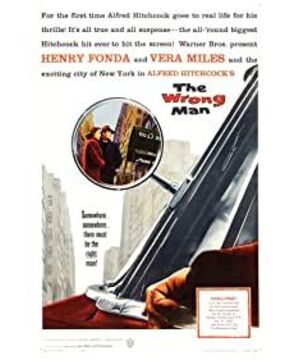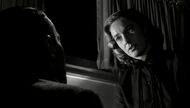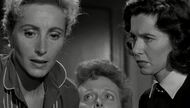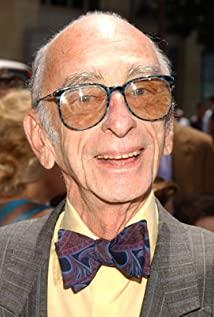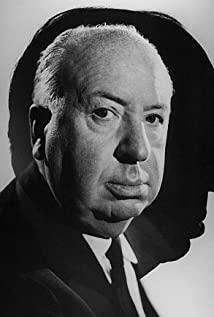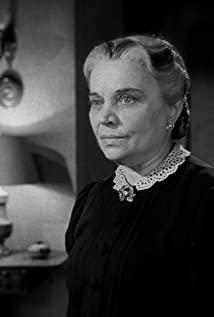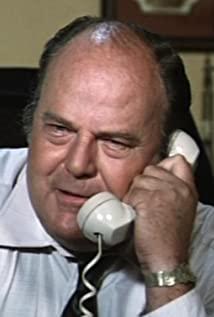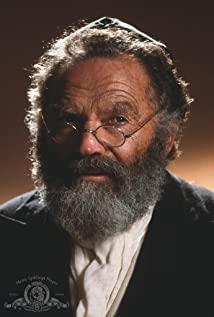Occasionally guest appearances in films directed by him are Hitchcock's little hobby. This habit has been with him for many years, and now it has become an interesting story of film history praised by fans.
Hitchcock still showed his face in The Reunion directed in 1956, but the situation is different this time. At the beginning of the film, Hitchcock stands in a strong backlight, with a shadow pulled far away under his feet. His voice is strong and powerful, and his language is simple and capable. He directly points out the main points: I am Hitchcock, and this movie is very good. Unusual.
Yes, such an unusual opening is destined to make the audience more vigilant. Any clues will not be let go, and strive not to lose ground in the "mind game" of more than 100 minutes. (How is it possible, I never guessed the ending of Hitchcock's movie.)
Then an oblique shot officially kicked off, and the story full of suspense and tension began.
As always, the story of the film is still confusing and flawless, fully demonstrating Hitchcock's mastery of writing suspense dramas.
A luthier (played by Henry Fonda) in a nightclub is accused of being the murderer of the robber for no reason, and there are many witnesses. Even more frightening is that his handwriting also resembles that of the suspect. All kinds of unfavorable conditions show that he is the murderer. But his wife, mother and children did not want to believe it.
A man is involved in a case inexplicably, and all the surrounding factors are not good for him. She needs to deal with both the police and the criminals at the same time. We have seen this setting in "North by Northwest" and "Catch a Thief". In these two films, the male protagonist chooses to resist, and there is a woman to help. Although the situation is difficult and dangerous, the situation is still Controllable.
Unlike "The Reunion", Fang Da did not fight from beginning to end, and it was true that he was described as squeezed. However, his wife suffered a mental breakdown after obtaining evidence repeatedly to no avail, and her condition was no better than her husband.
The film advances in a passive way, and it is often the external factors that promote the development of the plot, rather than the subjective effective actions taken by the protagonist.
The development of the story is also strange and confusing. The film almost completely explained Fang Da's process from being recognized as a "criminal" to being identified and detained by the police, to obtaining parole and inviting a lawyer. Moreover, the distribution of each content is relatively even, just like a pipeline, it is "flat", and there are no prominent points. Hitchcock even joined two court scenes after that, and some scenes in which Fonda obtained evidence. (Don’t you think this is a court movie.)
In almost every scene, Hitchcock uses signature close-ups and smooth motion mirrors to deepen the sense of suspense, the fear of the female staff, Fonda, the anxiety when Fonda was taken away by the police, and the despair in his heart after being detained. And the mental breakdown of his wife, etc., all kinds of negative emotions mixed together, making the story more complicated and confusing.
In such a desperate situation, I am afraid that only God can save him. Religion occupies an absolute central position in this film. When Fang Da was asked to hand over his personal belongings at the police station, the cross pendant was found. When the court was tried, he also held the pendant tightly.
Martin Scorsese once gave some insights into the identity of God in The Reunification. He believed that Hitchcock was a Catholic (Hitchcock never admitted his religious beliefs), and he even Specifically pointed out that Fonda was imprisoned in a scene in a scene where Fonda looked up and looked up (there was a turn to the upper right afterwards)
And the close-up shot of the iron door keyhole like the icon of the cross is basically a metaphor for the believers to pray for God's salvation.
Mr. Martin even made it clear that the angles of these close-up shots are not suitable at all, like the close-up shots of iron gates, which are much higher than Fonda's line of sight.
Of course, the most powerful evidence appeared in the last 10 minutes of the film. Fonda's mother hoped that he would pray to God.
He did.
Then, it's time to witness the miracle.
The following is the essence of the film: the close-up of Fonda’s prayer overlaps with the distant view of a person walking on the street. The connection between the two is self-evident, and the truth is ready to come out.
Forgive me for not being able to spoil the results, but I can tell you that God really helped.
Perhaps as Mr Martin said, Hitchcock, a devout believer (guess), salutes his faith with the best method. At this time, the truth is no longer important. The director's atypical sermons have already occupied the core of the film.
To say more, whether Hitchcock appeared in real life or reminded by letters, the film repeatedly emphasized that "this is a true story", but I didn't believe it from beginning to end. Is this a sequelae left by Hitchcock?
PS. The content of Mr. Martin can be found in "Hitchcock and Truffau".
View more about The Wrong Man reviews


